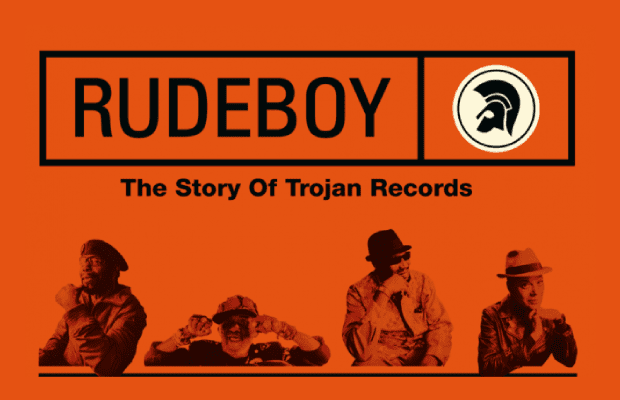The story of Trojan Records, the most iconic British ska/rocksteady/reggae label, is inextricably linked to that of the Jamaican community in Britain.
For seven years, the label — alongside very few others — served as the cultural voice for those who had recently traded the warm beaches of the West Indies for the rain-lashed streets of Hackney. It was a voice that sung for different reasons: sometimes with thoughts of home, sometimes lovelorn, sometimes with warnings or messages to the youth.
Then it collapsed.
Rudeboy: The Story of Trojan Records, directed by Nicolas Jack Davies, is the latest attempt to grasp the musical and social significance of the ska/rocksteady/reggae evolution. And it does not do it alone. A legion of greying legends appear across Rudeboy — Bunny Lee, Toots Hibbert, Pauline Black, and Derrick Morgan, to name but a few — and grant the audience some expert insights.
Out of their interviews — beautifully shot and interspersed with recreations and B-roll footage — an earnest characterisation of Trojan is built. As each chapter passes, more and more of the label’s ethos and importance is revealed. In essence, the story is of a ‘rise-and-fall’ journey; it traces the label from ska’s origins in the sound-system culture of Kingston, through the godfathers of the genre — Duke ‘The Trojan’ Reid and Coxsone Dodd, to name two — to the introduction of its pioneer Lee Gopthal, its rise, and its eventual liquidation.
There was always an enduring racial component to Trojan that could not, and should not, be overlooked. Whereas the white Teddy Boys of the 1950s generally rejected the cultural influence of newly-arrived immigrants, some members of the generation that followed found value in Trojan’s reggae wave. This group was identified by their shaved heads — something that was also common among West Indian youths — and quickly named ‘skinheads’.
Think of ‘skinheads’ today, and it’s likely that your imagination will be tainted by the fascist National Front followers of the late 1970s and ‘80s; these appropriators of trans-racial working class subculture have no real claim to the fashion they use, but they have thrashed their way into public consciousness regardless. To be a ‘skinhead’ with any real cultural lineage, you must trace your origins to the enmeshing of ‘immigrant’ and ‘indigenous’ that occurred during the ’68 and ’69, set to the soundtrack of Trojan Records and Northern soul. In an implicit way, Rudeboy gives a necessary reminder of this. By restating the ‘skinhead’ origins, the film reclaims the ‘multicultural movement’ aspect of both Trojan and the subculture it sparked; neither the former skinheads nor their West Indian musical heroes appear out of place.
Put simply, Rudeboy manages to paint an extraordinary picture. It is one that, if you have had no contact with it, you may struggle to fully grasp. Trojan Records is as inextricable from British West Indian culture as West Indian culture is from modern Britain. I grew up in the parochial East Midlands of England, a hereditary member of the (de)famed “white working class”, surrounded by music of black origin and conscious (in my limited way) of our intimate connections to the black Britons who were our friends, neighbours, and colleagues.
But Rudeboy doesn’t give in to oversimplified, triumphalist nostalgia. It reminded me of the reality of immigration to Britain for West Indian families, the racism they endured, and the cautious and eventual mainstream acceptance. It retold the horrific treatment of Lee Gopthal, moved to tears by liquidators after Trojan collapsed: “If you’re an Indian, why are you trying to run an empire? You should be running a green grocer’s shop?”
Rudeboy tells the story of Trojan Records, the story of the Jamaican community in Britain, and the story of working class musical subcultures — and it does it all tremendously in a off-beat fashion.





